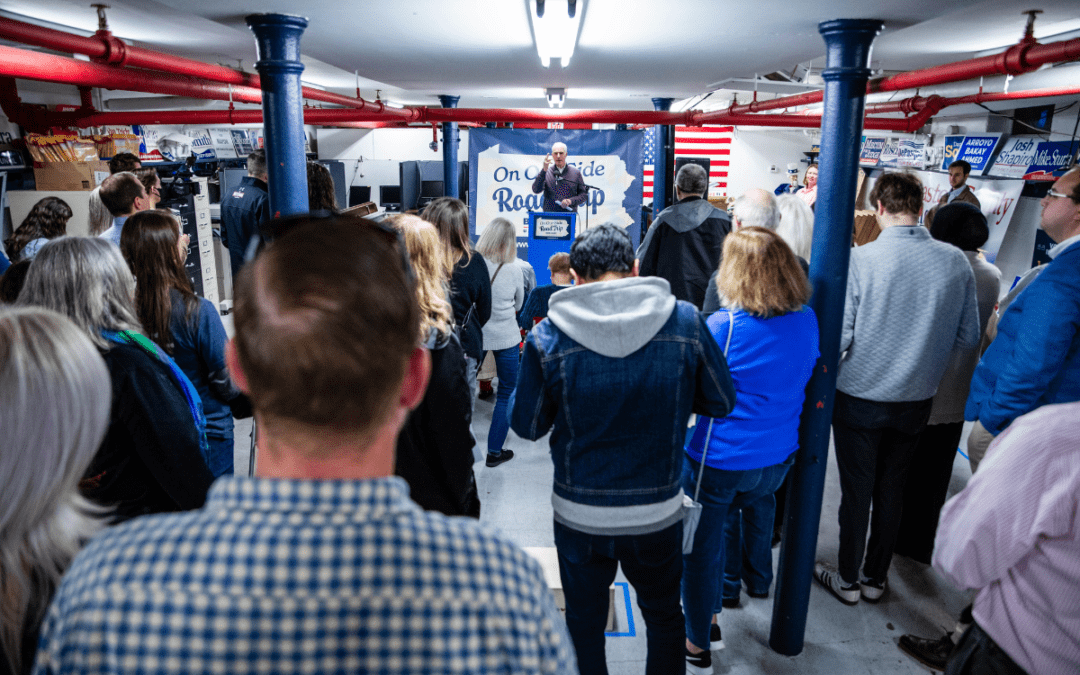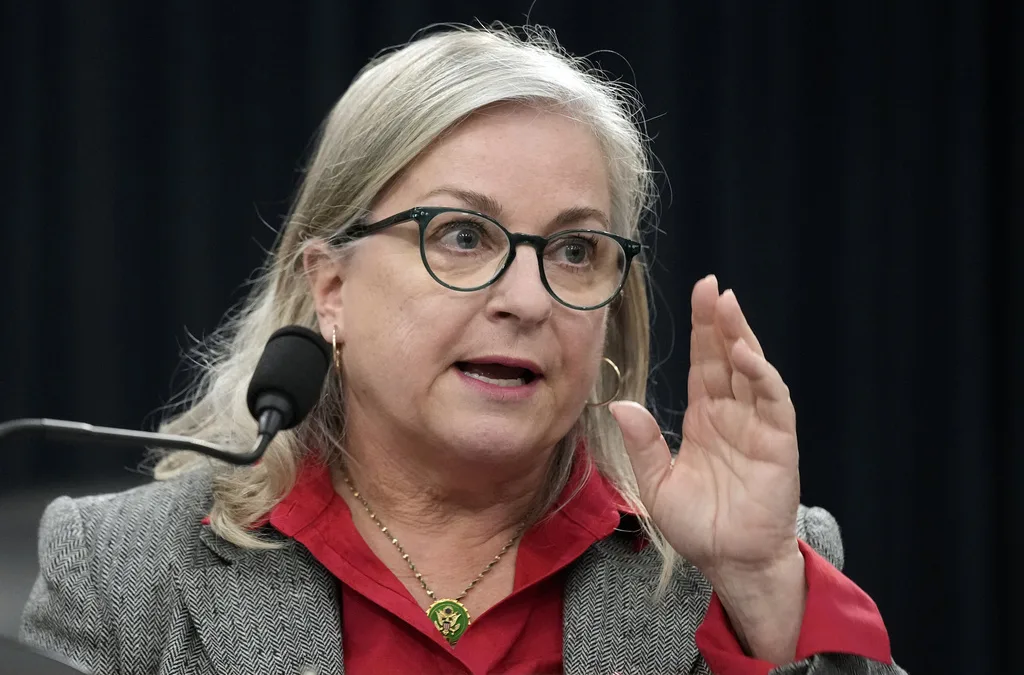
Image via Shutterstock
Organizations that offer life-sustaining services are largely still operating—but they’re feeling the effects of the unprecedented health crisis.
For months, members of the Pennsylvania Ballet have been gearing up for the 28th annual “Shut Up & Dance” performance. The event was scheduled for this past weekend to raise funds for MANNA, a Philadelphia-based nonprofit that provides medically tailored meals and nutrition education to more than 9,000 local residents who are battling illnesses.
But because of the growing coronavirus pandemic, the show was one of countless nonprofit fundraisers that have been canceled—leaving organizations that provide vital services to the state’s most vulnerable residents scrambling to fill those gaps.
“The pandemic is placing extraordinary stress on our city and region, particularly on already strained community organizations that help our most vulnerable residents,” Philadelphia Mayor Jim Kenney said in a press conference this week. “We must work urgently to provide them with greater financial support.”
To assist nonprofits who’ve had to close their doors, lay off staff, and abandon regular fundraising efforts, the Philadelphia Foundation and other philanthropic organizations launched a $6.5 million fund to help nonprofits that serve vulnerable populations, particularly those with disabilities, seniors, the homeless and low-income individuals.
“Many of our nonprofits are worried they can’t perform their mission if they can’t meet payroll, pay their rent, or need to lay off staff,” Kenney said. “Mission-driven leaders and staff are needed more now, in a crisis, not less—or it will be devastating.”
As businesses across the state close their doors because of sweeping regulations related to the pandemic, organizations that offer life-sustaining services are largely still operating—but they’re feeling the effects of the unprecedented health crisis.
With kids unable to access school lunches and more than 650,000 Pennsylvanians filed for unemployment in the past two weeks—the most of any state in the country—the need is significant.
With economic uncertainty spreading, Central Pennsylvania Food Bank has seen an upswing in demand. The organization supplies food donations for more than 1,000 partner agencies across 27 counties, which distribute them to locals in need, an average of 135,000 people each month. But some agencies reported triple the number of clients in recent weeks, said Jennifer Sands, communications and marketing manager at Central Pennsylvania Food Bank.
With kids unable to access school lunches and more than 650,000 Pennsylvanians having filed for unemployment in the past two weeks—the most of any state in the country, and a number that Gov. Tom Wolf predicts will climb to 800,000—the need is significant.
But public support has also increased.
“The generous community is stepping up to help with volunteers and financial support,” Sands said. “We hope that will continue because we know the impact of food insecurity will be felt long after the crisis is over.”
The organization has created overstock inventory—in case partner agencies experience volunteer shortages—and, to protect the health of staff, volunteers, and clients, instituted new precautions, including heightened cleaning protocols and volunteer requirements. Interested volunteers must sign waivers affirming they have not exhibited symptoms or been around anyone who has tested positive for COVID-19 in the last two weeks, among other requirements.
Volunteer health has also been a priority for MANNA. In addition to financial donations, the organization is in need of more people to help out; they must be healthy, not be in a high-risk group, and have not had any symptoms or recent travel. The organization condensed operating hours and eliminated weekend and evening volunteer opportunities for the short term, and it is limiting the number of people who can be in the kitchen at one time.
“We’re all hands on deck,” said Sue Daugherty, CEO of MANNA. “We are working hard to get all of our meal deliveries out, and we are operating on a regular delivery schedule.” No client programs have changed, and MANNA added an extra week of non-perishable food to each client’s delivery in case of emergency.
Daugherty said the organization is focusing on the immediate needs of clients, though long-term strategizing is a concern. While the cancelation of fundraising events is “not ideal,” she noted, “it’s the responsible choice.”
“We’re focusing on our clients, and they will always come first,” she said. “We will certainly miss the revenue that comes from these events, but we’re so lucky to have such a supportive community around us, and we will get through this.”
RELATED: How Americans Are Coming Together to Survive Coronavirus
Fundraising is also a worry for the Pennsylvania Society for the Prevention of Cruelty to Animals (PSPCA), which relies heavily on public donations and has had to reschedule a number of large-scale revenue-generating events.
“In a time of uncertainty like this one, we worry that fundraising will continue to be a challenge,” said Gillian Kocher, director of public relations.
The nature of the pandemic—and the ongoing uncertainty it has brought—is making long-term planning hard, Kocher said. So, like many organizations, the PSPCA is focusing on the short term. All of its operations continue to be up and running—including its Humane Law Enforcement and Animal Care teams, veterinary hospital, and clinic, though the latter has moved to curb-side dropoff to minimize contact.
Most notably, the PSPCA closed adoptions for the time being as a precautionary measure for both staff and the public. Kocher said the organization is aiming to return to limited appointment-based adoptions.
Fortunately, volunteers—many of whom are self-quarantining—are stepping up in droves to become fosters.

“This is so impactful for not only the animals who will be in homes, but for our staff, who may be limited in the coming days,” Kocher said. It’s also vital to help open up space for the influx in animals she believes will be coming into the shelter—whether because their owners are sick or don’t have the means to care from them because of job loss or worsening economic conditions. “That is why it is so crucial right now for our team to place as many animals in homes as possible.”
Fosters can apply online, and the organization is also accepting monetary donations on Venmo through @PSPCA.
“Our work does not stop,” Kocher said. “The animals who depend on us are still here, and we will be here for them.”
Politics

Bob Casey: Past time to reign in corporations ‘jacking up their prices’
US Sen Bob Casey continued calling out corporate greed and price gouging at a canvass launch in the City of Lancaster on Sunday. Maintaining the...

Susan Wild calls out Republicans for holding up Ukraine aid
‘It’s not only shameful, but embarassing.” That’s what US Rep. Susan Wild (D-Pennsylvania) had to say about the Republican-led US House’s...

He said what? 10 things to know about RFK Jr.
The Kennedy family has long been considered “Democratic royalty.” But Robert F. Kennedy, Jr.—son of Robert F. Kennedy, who was assassinated while...
Local News

Conjoined twins from Berks County die at age 62
Conjoined twins Lori and George Schappell, who pursued separate careers, interests and relationships during lives that defied medical expectations,...

Railroad agrees to $600 million settlement for fiery Ohio derailment, residents fear it’s not enough
Norfolk Southern has agreed to pay $600 million in a class-action lawsuit settlement for a fiery train derailment in February 2023 in eastern Ohio,...





